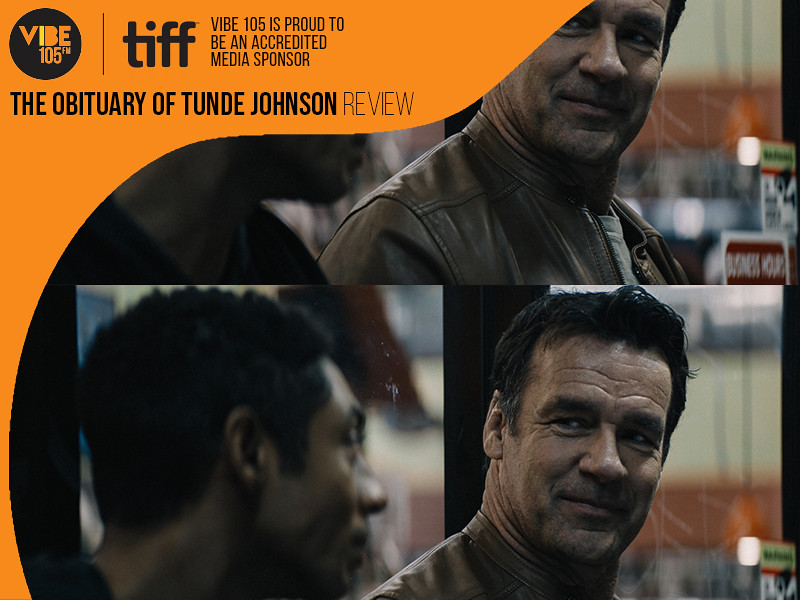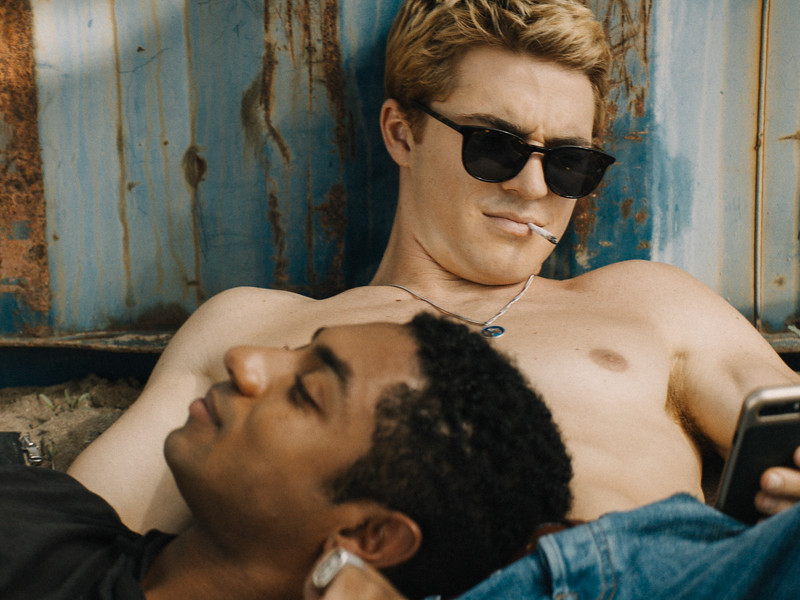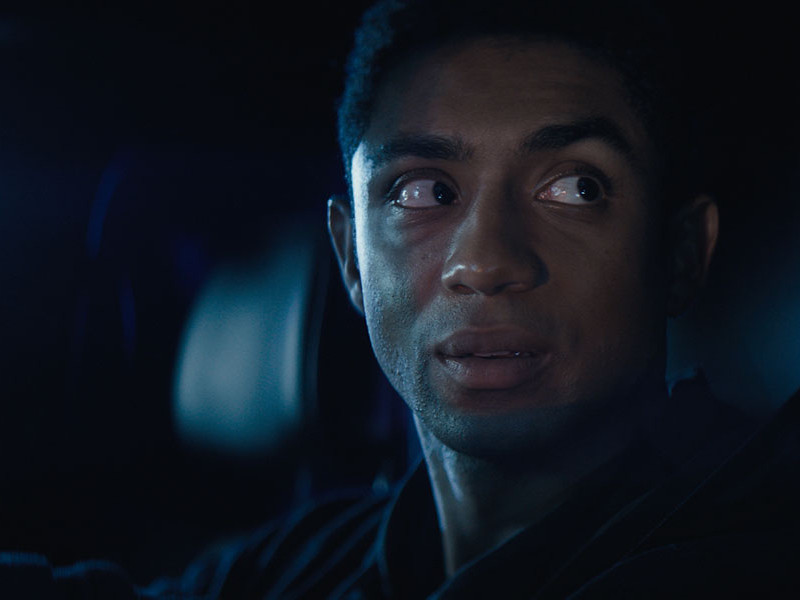|
By Benjamin Akpan The year is 2020, and there’s nothing worse in America than being Black. Actually, there’s nothing worse than being gay. Of course, you could be both Black and gay, which is surely a larger recipe for disaster than being either. But The Obituary of Tunde Johnson, Ali LeRoi’s feature debut, posits that there could be something much worse: being a dead, gay Black person. And as if death is not the end-all of worst-case scenarios, try this for size: reliving one’s death as a gay person-of-colour. This is the situation LeRoi’s titular character finds himself in: “Babatunde Adesola Johnson was born to Adesola Johnson and Yomi Okeke on December 30, 2002. On the night of May 28, 2020, Tunde Johnson departed this life at the hands of the police in California.” It is with that stern voice-over narration that we are thrown into the world of Tunde, an anxious, reserved teenager who becomes trapped in a bizarre time loop that forces him to repeatedly relive the day of his fatal, racially motivated shooting by a police officer. And for all the tragedy in the film, the worst part of it all is actually watching Tunde Johnson. This Groundhog Day-esque film falls flat on most fronts, with carefully calculated beats of emotion and tension that border on exploitative. May 28, 2020 is supposed to be a good day for Tunde; he and his secret boyfriend Soren (Spencer Neville) are going to come out to their parents, after which they’ll enjoy a night together at Soren’s lavish birthday party. Each iteration of the day follows the same pattern – Tunde gets out of bed, heads to the living room, where his father (Sammi Rotibi) goes on a tangent about art. He leaves for school, goes to the beach with Soren, and comes out to his parents on his return home. He begs to drive his father’s car to Soren’s party, and then is murdered by the police on his way there. Of course, some iterations consist of slight variations: Tunde takes a different car, hangs out at different parts of the beach, or sees his therapist. Nevertheless, the outcome of the day is the same – Tunde ends up shot dead. From the moment Steven Silver – a 30-year-old actor – is presented to the audience as a high school senior, The Obituary of Tunde Johnson reveals to us that it does not know what the hell it is doing. Though, credit needs to be given to Silver; he plays an 18-year-old with as much vigour as an actual 18-year-old would have. Silver is not new to being cast in a role way beyond his age – he had a recurring role in the first two seasons of Netflix’s hit high school series 13 Reasons Why. But The Obituary of Tunde Johnson’s razor-focus on the character of Johnson relegates every other character to one-dimensionality. The trite writing and self-important tone result in performances that feel forced and essentially insincere. Still, in the grand scheme of things, the smaller details of the script – written by Stanley Kalu – are inconsequential considering how deliberate it is as a whole, premeditatedly attempting to elicit a certain emotional reaction from the audience that works to its detriment. Ultimately, what makes The Obituary of Tunde Johnson so insufferable is its non-traditional approach to the time loop trope. Despite countless recapitulations of the same day, Johnson’s experiences are treated like a fever dream, lived as a result of his withdrawal from a hallucinogenic. This lack of awareness provides no room for growth or development. Tunde’s actions are barely altered between loops, and as the film builds to a big change toward the end, the tension starts to feel passive at best. But maybe that’s the point. In an incisive visit to his therapist, Johnson says that his skin colour and sexuality have set him up to be “something to be feared and laughed at.” Nothing Tunde did – or didn’t do – warranted his murder. On the account of his skin colour alone, an attribute that he cannot change no matter how many times he relives that day, Tunde was already condemned to death. The Obituary of Tunde Johnson doesn’t make any commentary on police brutality, rather focusing on an exploration of the intersectionality of being Black and gay in modern America, and the results of grappling with these identities. In its structure, the film hones in on the inevitability of Tunde’s life; forged, not by his experiences, but by his very existence. Driven home by the fact that someone around us is Tunde Johnson, LeRoi and Kalu’s story becomes urgently important and relatable. The loop to which Tunde is damned begins to feel more like the day-to-day experiences of Black people in today’s society, who suffer the same indignities so often that they might very well be in a loop. Someone needs this story, and, if not for its lacklustre execution, The Obituary of Tunde Johnson could very well have been a timeless flick feeding the voice of many Black and gay persons. The movie loses itself in its ambitions, but it’s a worthy cause, one that asks more for our attention and empathy, than it does our need for thrill. *Editor’s Note: The Obituary of Tunde Johnson premiered under the Discovery Programme at the Toronto International Film Festival ’19.
|
Recent Posts
Categories
All
Archives
February 2022
|
|
GET THE APP!
Listen to VIBE 105 anywhere you go!
|
OUR STATION
|
TUNE IN RADIO
|
STAY CONNECTED
|
Copyright © 2021 Canadian Centre for Civic Media and Arts Development Inc. Except where otherwise noted, presentation of content on this site is protected by copyright law and redistribution without consent or written permission of the sponsor is strictly prohibited.





 RSS Feed
RSS Feed


